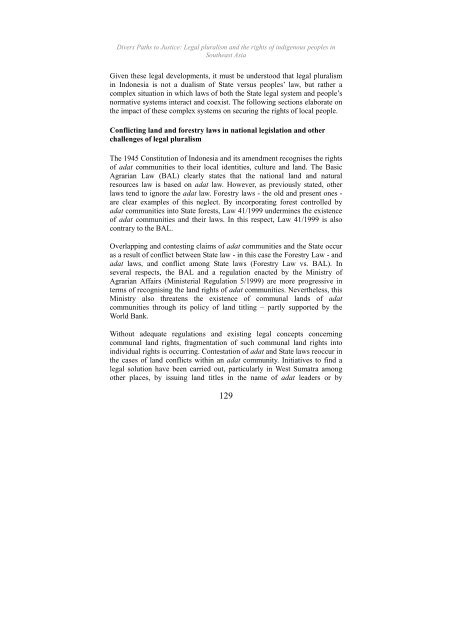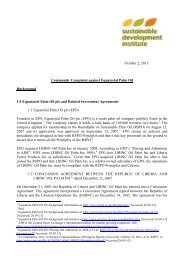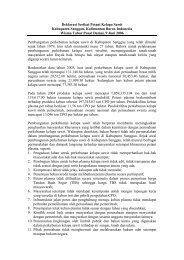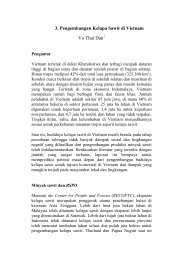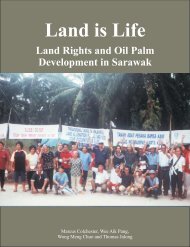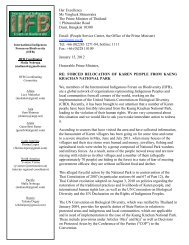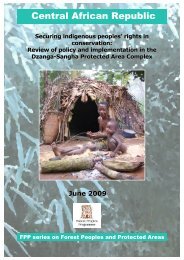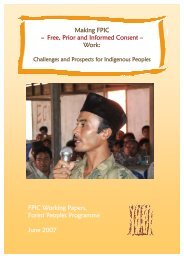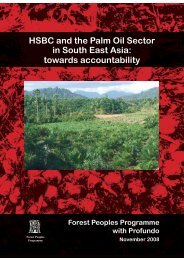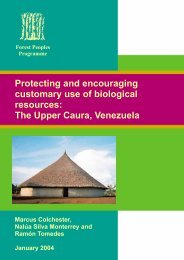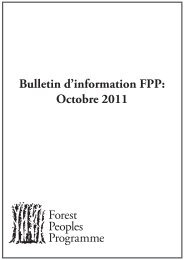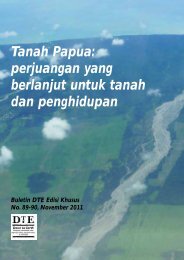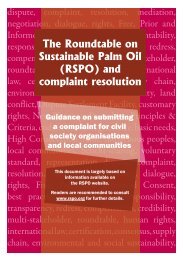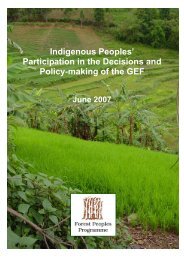Divers Paths to Justice - English - Forest Peoples Programme
Divers Paths to Justice - English - Forest Peoples Programme
Divers Paths to Justice - English - Forest Peoples Programme
Create successful ePaper yourself
Turn your PDF publications into a flip-book with our unique Google optimized e-Paper software.
<strong>Divers</strong> <strong>Paths</strong> <strong>to</strong> <strong>Justice</strong>: Legal pluralism and the rights of indigenous peoples inSoutheast AsiaGiven these legal developments, it must be unders<strong>to</strong>od that legal pluralismin Indonesia is not a dualism of State versus peoples’ law, but rather acomplex situation in which laws of both the State legal system and people’snormative systems interact and coexist. The following sections elaborate onthe impact of these complex systems on securing the rights of local people.Conflicting land and forestry laws in national legislation and otherchallenges of legal pluralismThe 1945 Constitution of Indonesia and its amendment recognises the rightsof adat communities <strong>to</strong> their local identities, culture and land. The BasicAgrarian Law (BAL) clearly states that the national land and naturalresources law is based on adat law. However, as previously stated, otherlaws tend <strong>to</strong> ignore the adat law. <strong>Forest</strong>ry laws - the old and present ones -are clear examples of this neglect. By incorporating forest controlled byadat communities in<strong>to</strong> State forests, Law 41/1999 undermines the existenceof adat communities and their laws. In this respect, Law 41/1999 is alsocontrary <strong>to</strong> the BAL.Overlapping and contesting claims of adat communities and the State occuras a result of conflict between State law - in this case the <strong>Forest</strong>ry Law - andadat laws, and conflict among State laws (<strong>Forest</strong>ry Law vs. BAL). Inseveral respects, the BAL and a regulation enacted by the Ministry ofAgrarian Affairs (Ministerial Regulation 5/1999) are more progressive interms of recognising the land rights of adat communities. Nevertheless, thisMinistry also threatens the existence of communal lands of adatcommunities through its policy of land titling – partly supported by theWorld Bank.Without adequate regulations and existing legal concepts concerningcommunal land rights, fragmentation of such communal land rights in<strong>to</strong>individual rights is occurring. Contestation of adat and State laws reoccur inthe cases of land conflicts within an adat community. Initiatives <strong>to</strong> find alegal solution have been carried out, particularly in West Sumatra amongother places, by issuing land titles in the name of adat leaders or by129


